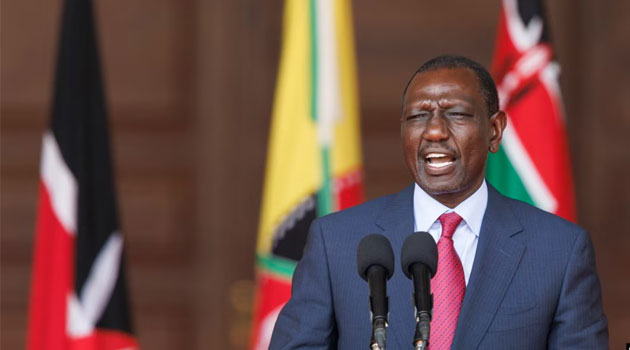
The Five Pillars That Built—and Now Threaten—Ruto’s Presidency » Capital News
I recently had a candid and refreshing conversation with Hon. Anthony Kibagendi—my brother, best friend, and a serving Member of Kenya’s 13th Parliament. Our discussion, rooted in shared history and a mutual fascination with Kenya’s political evolution, turned to the nation’s current turbulence and growing public outrage against the regime.
What stood out most was Hon. Kibagendi’s sharp analysis of President William Ruto’s rise to power—and how the very pillars that elevated him to State House are now turning against him: public sympathy, ethnic bloc consolidation, the church, international goodwill, and the Hustler ideology. These pillars once formed a formidable political architecture. Today, under the weight of unmet expectations, missteps, and a disillusioned populace, they threaten to collapse beneath him.
Ruto’s image as the sidelined Deputy President—isolated and betrayed by the very administration he helped build—resonated with many. He became the ultimate political underdog, a symbol of the ordinary Kenyan’s struggle against elite exclusion. But sympathy, like political capital, is finite.
Now, Ruto is the establishment. With every police crackdown on peaceful protestors, every ostentatious show of wealth by his allies, and every tone-deaf policy pronouncement, he moves further from the man Kenyans once saw as one of their own. The outrage that once fuelled his rise is now being redirected toward him.
Ruto’s masterstroke in 2022 was forging a powerful Mt. Kenya–Kalenjin alliance. Kenyan politics has long been shaped by ethnic alliances, what one scholar dubbed “the tyranny of numbers.” Ruto shrewdly positioned himself as Mt. Kenya’s post-Uhuru protector, rallying a region once hostile to him and securing a near-sweep in Central Kenya.
But the cracks have emerged. That bloc is fracturing. Former allies are now vocal dissenters, emboldened by growing youth agitation that rejects tribal loyalty. The attempted impeachment of Deputy President Rigathi Gachagua, and his replacement with a perceived mismatch, only deepened these divisions.
Ruto’s campaign dripped with religious symbolism. He quoted scripture, donated to churches, and cast his mission in divine terms. In return, the clergy offered legitimacy and a moral shield. But today, the church finds itself scrutinised.
The same youth who once chanted “Hatupangwingwi” at campaign rallies now view the pulpit as complicit in silence amid economic pain and police brutality. As public anger grows, many clergy are stepping back—acutely aware that continued proximity to power may cost them their moral standing.
In his early presidency, Ruto was a darling of the West. His digital economy push, green growth agenda, and reformist branding won him plaudits in diplomatic and multilateral circles. His charm offensive worked.
But the narrative is shifting. The killing of protesters, internet blackouts, and abductions of activists have triggered quiet unease in foreign capitals. Public rebukes may be absent, but reputational damage is mounting—and global partners are watching.
Perhaps the most powerful pillar was the “hustler” narrative. It transformed class resentment into political energy. Ruto promised a bottom-up model that included digital jobs, affordable credit, and inclusive prosperity. The mama mboga and boda boda rider were no longer sidelines—they were central to the story.
But today, hustlers feel betrayed. Their lives have not improved. Their taxes have risen. Their economic hope has dimmed. They are no longer chanting slogans—they are in the streets. The betrayal cuts deep because the faith was once so strong. And in that vacuum, a new ideology is taking hold: an ideology of resentment.
To avoid complete collapse, this administration must return to basics: rebuild trust, govern with empathy, uphold civil liberties, and reconnect with the people
Because a presidency born of populism can only survive by remaining true to the people—or risk being brought down by the very populism that gave it life, now turned into fury.